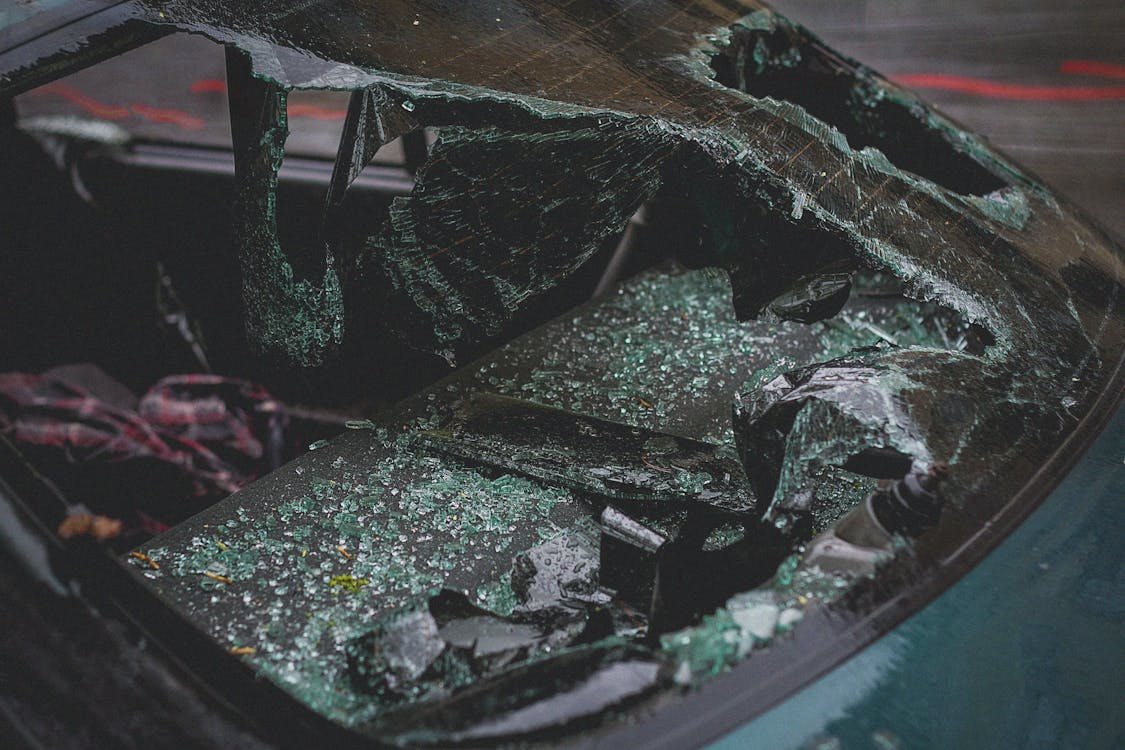
Australia’s road safety crisis has reached a chilling peak. New figures revealed the nation recorded 1,337 road deaths in the year to May 2025—a 15-year high and a 4.8 per cent increase from the previous year. Behind each number is a family shattered, prompting serious questions about whether the country’s current approach to driver education is failing an entire generation.
As Western Australia considered reforms to its licensing system—including extending the provisional period from two to three years and increasing the required supervised hours from 50 to 75—one retired driving instructor ignited a nationwide debate.
Ross Wright, who spent over two decades teaching Australians to drive, argued that the real issue wasn’t about how many hours learners spent behind the wheel. Instead, he said, it was about who was sitting in the passenger seat.
His proposal? End the reliance on ‘mum and dad’ driving lessons and introduce mandatory sessions with professional instructors.
In this article
For generations, teaching a child to drive had been an Australian family rite of passage. Parents proudly passed down driving wisdom—along with their quirks and habits. But Wright believed this cherished tradition was quietly endangering lives.
‘There needs to be a couple of one-hour sessions where they go through road positioning and discuss attitude with driving instructors... instead of mum or dad teaching them to lean on the car horn and get into a confrontation,’ Wright shared.
His concern extended beyond steering and braking to what he viewed as the lost art of road etiquette.
‘The main ones are patience and courtesy... they’re long gone on our roads these days,’ he said.
Current WA Learner Requirements
Minimum 50 supervised driving hours
5 hours must be at night
No mandatory professional instruction
Provisional period: 2 years (proposed to increase to 3)
How the Rest of the World Does It
Australia’s model appeared increasingly outdated when compared with international systems.
In Ireland, for example, learners were required to complete 12 hours of lessons with a certified driving instructor. Norway went even further, mandating 17 hours of professional training before testing.
The cost was steep—around £2,536.82 for a full Norwegian licence—but the safety payoff was undeniable. Fewer collisions, fewer fatalities, and better-prepared drivers had become the norm.
Closer to home, some Australian states recognised the benefits of formal instruction through incentives. In New South Wales and Queensland, every hour spent with a licensed driving instructor counted as three logbook hours, rewarding learners for investing in higher-quality training.
‘Introducing mandatory professional driving lessons into the learner journey would be highly impactful in improving road safety.’
The Alarming Statistics Behind the Urgency
The urgency for reform became clear when national statistics revealed a worsening safety trend.
For the 12 months ending August 2025, Australia’s road fatality rate reached 4.9 deaths per 100,000 people.
New South Wales recorded the highest toll with 375 fatalities—a 16.1 per cent rise—while Queensland followed with 311 deaths, marking a 7.2 per cent increase.
Western Australia, meanwhile, hit an 18-year high in 2024.
Each of these numbers represented a human story—often involving young, inexperienced drivers. The data painted a grim picture of a system struggling to keep pace with modern traffic realities.
Did you know?
Most fatal crashes involved single vehicles making up 54.1 per cent of all fatal accidents in the 12 months ending August 2025. Experts said this pointed to gaps in hazard awareness and vehicle control—skills professional instructors were specifically trained to teach.
The Professional vs Family Training Divide
Ross Rivalland, from Ezlicence, supported what he called a ‘hybrid approach’—a blend of professional and family instruction.
He recommended introducing a minimum of five mandatory hours with professional instructors, estimating the additional cost at roughly $400 based on average lesson prices of $80 per hour.
‘Not all supervisors are equal,’ Rivalland explained. ‘Some may have decades of experience, whereas others may unintentionally reinforce outdated habits or provide limited feedback to the learner.’
His view echoed Wright’s concerns: that while parents had good intentions, they often lacked the structured teaching methods, modern hazard training, and defensive driving techniques professionals could provide.
A parent might focus on keeping the car moving from A to B, but an instructor’s job was to build mental preparedness—anticipating danger, managing emotions, and maintaining control under pressure.
Learning from Europe’s Evolution
Across Europe, driver training had evolved dramatically since the 1990s.
Countries like Sweden, Finland, Austria, Luxembourg, and Norway reshaped their licensing systems around psychological readiness rather than mechanical skill.
Modern programs there taught learners how to self-assess, manage risk, and anticipate hazards.
The focus shifted from simple control to disciplined awareness—instilling a culture of responsibility and humility behind the wheel.
Experts said that family-based teaching often produced overconfidence, as parents might unintentionally reinforce false perceptions of ability.
By contrast, structured instruction encouraged learners to recognise their own limitations—a mindset linked to lower crash rates and safer long-term driving behaviour.
The Economic Reality for Australian Families
Cost remained a major sticking point for Australian families.
Currently, most households paid little beyond registration and petrol, with parents covering all supervised hours themselves.
Introducing mandatory professional lessons would add a new financial burden, though advocates argued the benefits far outweighed the costs.
Better-trained drivers, they said, would mean fewer crashes, cheaper insurance, and—most importantly—fewer funerals.
Compared to Europe’s multi-thousand-dollar systems, even a $400 investment would keep Australian training costs low while boosting road safety outcomes.
Example Scenario
- Example: Sarah’s 17-year-old son Tom was learning to drive in Western Australia. Under current rules, she could supervise all 50 required hours herself. If mandatory professional instruction were introduced, Sarah would need to budget around $400 for five professional lessons while still logging 45 hours with Tom. Those professional sessions would cover hazard perception, road positioning, and defensive driving—areas Sarah, despite decades behind the wheel, might not be qualified to teach systematically.
What This Means for Older Australians
For many Seniors Discount Club readers, the issue struck close to home.
Grandparents and older family members often played a key role in teaching the next generation to drive or supporting adult children as they guided their teens.
But the debate raised a broader question—should driver education stop once we get our licence?
In some European nations, refresher courses were mandatory for all drivers, recognising that technology, road rules, and vehicle design continually evolved.
Periodic retraining, though controversial, could ensure even experienced drivers stayed sharp and up to date.
After all, if family instruction wasn’t enough for learners, perhaps older drivers too could benefit from professional insight.
The Industry Response
When contacted, the WA Road Safety Commission declined to comment on Wright’s specific proposal, suggesting it remained under review within government circles.
That silence was telling.
The issue was politically sensitive—especially amid a cost-of-living crisis when few families could afford new financial pressures.
Yet with fatality rates rising and international comparisons growing more unfavourable, policymakers might soon face difficult decisions.
Professional instructors backed Wright’s call for reform, though their support appeared grounded in evidence rather than self-interest.
Research consistently showed that structured driver education improved safety outcomes—and saved lives.
The Professional Training Debate: Key Points
- Australia recorded 1,337 road deaths in 2025, a 15-year high.
- No state currently required mandatory professional driving instruction.
- European countries mandated 12–17 hours of professional lessons, correlating with lower crash rates.
- Adding five hours of compulsory lessons would cost roughly $400 but could dramatically improve driver safety.
- The proposal challenged a long-standing Australian tradition of family-taught driving.
Moving Forward: Finding the Right Balance
Ross Wright’s idea may have rattled family traditions, but it also demanded an honest reckoning with uncomfortable truths.
The reality was that love and good intentions could not replace expertise and structured training.
Mandatory professional instruction wouldn’t exclude parents from the process—it would complement them, ensuring every learner received consistent, expert guidance in the skills that mattered most.
As Australia’s road toll continued to climb when it should have been falling, perhaps it was time to accept that change was necessary.
Losing a loved one to a preventable crash was a pain no family should endure—and if a few mandatory lessons could save even one life, then the question remained: was that not worth the cost?
What This Means For You
Australia’s road deaths surged to a 15-year high, sparking renewed calls for reform in how new drivers are trained. Experts warned that family-taught driving might be unintentionally passing down unsafe habits from one generation to the next, leaving young motorists ill-prepared for modern road conditions.
Many argued that introducing mandatory professional instruction could make a major difference in helping learners develop better awareness, attitude, and defensive driving skills. Evidence from European countries supported this idea—showing that structured, professional education programs led to fewer accidents and safer drivers overall.
For older Australians, especially grandparents helping teens learn to drive, this serves as an important reminder that even decades of experience may not always translate into safe teaching. Embracing updated driver education could be the key to protecting both current and future generations on the road.
While discussions continue about improving driver training for young learners, there’s another side to the road safety conversation that deserves attention—the rules affecting experienced drivers behind the wheel.
Recent proposals have hinted at tougher licence checks and new assessments for older motorists, sparking debate about whether such measures enhance safety or unfairly target those with decades of driving experience.
It’s a timely reminder that as road safety reforms evolve, they may soon impact drivers at every stage of life.
Read more: Buckle up, seniors! New driving regulations could target elderly licence holders
Road deaths hit 15-year high—Australian Automobile Association — Reports that the year to 31 May was Australia’s deadliest 12 months on the road since 2010, with 1,337 deaths, up 4.8 per cent from the previous year.
https://www.aaa.asn.au/2025/06/road-deaths-hit-15-year-high/
Learner drivers — Outlines Western Australia’s learner requirements, including 50 supervised driving hours with at least five at night before obtaining a driver’s licence.
https://www.wa.gov.au/organisation/road-safety-commission/learner-drivers
Revealed: How much it costs to learn to drive in these 11 countries—Uswitch — Details international licensing costs and requirements, including Ireland’s 12 mandatory hours with an RSA-approved instructor and Norway’s 17-hour minimum.
https://www.uswitch.com/car-insurance/guides/cost-of-driving-licences-around-the-world/
Monthly road deaths | National Road Safety Data Hub — Provides statistics showing that for the 12 months ending August 2025, the national road fatality rate was 4.9 deaths per 100,000 people, with NSW and Queensland recording the highest tolls.
https://datahub.roadsafety.gov.au/progress-reporting/monthly-road-deaths
European advanced driver training programs: Reasons for optimism—ScienceDirect — Examines how countries like Sweden, Finland, Austria, Luxembourg, and Norway shifted their training focus toward self-assessment, risk anticipation, and realistic ability evaluation.
https://www.sciencedirect.com/science/article/pii/S0386111211000033
How do you think Australia can turn this alarming trend around before more lives are lost on the road?[p/]







